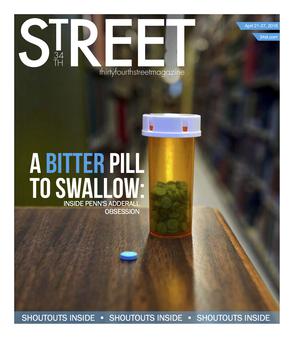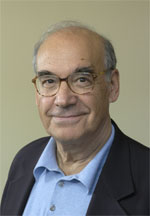Related Research Articles

The Philadelphia Inquirer is a daily newspaper headquartered in Philadelphia, Pennsylvania. The newspaper's circulation is the largest in both the U.S. state of Pennsylvania and the Delaware Valley metropolitan region of Southeastern Pennsylvania, South Jersey, Delaware, and the northern Eastern Shore of Maryland, and has the 17th-largest circulation of any newspaper in the United States as of 2017.

The Pulitzer Prize for Public Service is one of the fourteen American Pulitzer Prizes annually awarded for journalism. It recognizes a distinguished example of meritorious public service by a newspaper or news site through the use of its journalistic resources, which may include editorials, cartoons, photographs, graphics, video and other online material, and may be presented in print or online or both.

The Daily Pennsylvanian, Inc. is the independent student media organization of the University of Pennsylvania. The DP, Inc. publishes The Daily Pennsylvanian newspaper, 34th Street Magazine, and Under the Button, as well as five newsletters: The Daily Pennsylvanian, The Weekly Roundup, The Toast, Quaker Nation, and Penn, Unbuttoned.
Richard Read is a freelance reporter based in Seattle, where he was a national reporter and bureau chief for the Los Angeles Times from 2019 to 2021. A two-time Pulitzer Prize winner, he was a senior writer and foreign correspondent for The Oregonian, working for the Portland, Oregon newspaper from 1981 to 1986 and 1989 until 2016.

Ralph Emerson McGill was an American journalist and editorialist. An anti-segregationist editor he published the Atlanta Constitution newspaper. He was a member of the Peabody Awards Board of Jurors, serving from 1945 to 1968. He won a Pulitzer Prize for editorial writing in 1959.
Wendell Lee Rawls Jr. is a Pulitzer Prize-winning investigative reporter and editor. His career spans 40 years in journalism and media, beginning in 1967 at The (Nashville) Tennessean.
The following are the Pulitzer Prizes for 1987.
Homer William Bigart was an American reporter who worked for the New York Herald Tribune from 1929 to 1955 and for The New York Times from 1955 to his retirement in 1972. He was considered a "reporter's reporter" and an "enduring role model." He won two Pulitzer Prizes as a war correspondent, as well as most of the other major journalism awards.

Harry Scott Ashmore was an American journalist who won a Pulitzer Prize for his editorials in 1957 on the school integration conflict in Little Rock, Arkansas.
Donald L. Barlett is an American investigative journalist and author who often collaborates with James B. Steele. According to The Washington Journalism Review, they were a better investigative reporting team than even Bob Woodward and Carl Bernstein. Together they have won two Pulitzer Prizes, two National Magazine Awards and six George Polk Awards. In addition, they have been recognized by their peers with awards from Investigative Reporters and Editors on five separate occasions. They are known for their reporting technique of delving deep into documents and then, after what could be a long investigative period, interviewing the necessary sources. The duo has been working together for over 40 years and is frequently referred to as Barlett and Steele.

T. Christian Miller is an investigative reporter, editor, author, and war correspondent for ProPublica. He has focused on how multinational corporations operate in foreign countries, documenting human rights and environmental abuses. Miller has covered four wars — Kosovo, Colombia, Israel and the West Bank, and Iraq. He also covered the 2000 presidential campaign. He is also known for his work in the field of computer-assisted reporting and was awarded a Knight Fellowship at Stanford University in 2012 to study innovation in journalism. In 2016, Miller was awarded the Pulitzer Prize for Explanatory Journalism with Ken Armstrong of The Marshall Project. In 2019, he served as a producer of the Netflix limited series Unbelievable, which was based on the prize-winning article. In 2020, Miller shared the Pulitzer Prize for National Reporting with other reporters from ProPublica and The Seattle Times. With Megan Rose and Robert Faturechi, Miller co-won the 2020 award for his reporting on United States Seventh Fleet accidents.

Hank Klibanoff is an American journalist, now a professor at Emory University. He and Gene Roberts won the 2007 Pulitzer Prize for History for the book The Race Beat: The Press, the Civil Rights Struggle, and the Awakening of a Nation.
Claude Fox Sitton was an American newspaper reporter and editor. He worked for The New York Times during the 1950s and 1960s, known for his coverage of the civil rights movement. He went on to become national news director of the Times and then editor of The News & Observer in Raleigh, North Carolina.

Haynes Bonner Johnson was an American journalist, author, and television analyst. He reported on most of the major news stories of the latter half of the 20th century and was widely regarded as one of the top American political commentators.

The Race Beat: The Press, the Civil Rights Struggle, and the Awakening of a Nation is a 2006 nonfiction book by journalists Gene Roberts and Hank Klibanoff. The book is about the Civil Rights Movement in the United States, specifically about the role of newspapers and television. The Race Beat refers to reporters whose beat reporting covered issues of race.

John N. Herbers was an American journalist, author, editor, World War II veteran, and Pulitzer Prize finalist.
Barbara Demick is an American journalist. She was the Beijing bureau chief of the Los Angeles Times. She is the author of Logavina Street: Life and Death in a Sarajevo Neighborhood. Her second book, Nothing to Envy: Ordinary Lives in North Korea, was published by Spiegel & Grau/Random House in December 2009 and Granta Books in 2010. An animated feature film based on the book and sharing the same title was planned to be directed by Andy Glynne. The project launched in 2012 and a pilot was released in 2015. Its status as of January 2018 is not clear.
Ray Sprigle was a journalist for the Pittsburgh Post-Gazette. He won a Pulitzer Prize in 1938 for his reporting that Alabama Senator Hugo Black, newly appointed to the US Supreme Court, had been a member of the 20th-century Ku Klux Klan.

Robert Jon "Rosey" Rosenthal is a journalist, former editor of The Philadelphia Inquirer and managing editor of the San Francisco Chronicle. Rosenthal currently holds the position of executive director of the Center for Investigative Reporting. He is known for his work as an investigative reporter and foreign correspondent. As an African correspondent for The Philadelphia Inquirer, Rosenthal won several journalism awards, including the Sigma Delta Chi Award for Distinguished Foreign Correspondence.

Eugene Corbett Patterson, sometimes known as Gene Patterson, was an American journalist and civil rights activist. He was awarded the 1967 Pulitzer Prize for Editorial Writing.
References
- ↑ For birthdate and full name, Library of Congress Authorities cites Contemporary Authors, which may be derived from earlier LC CIP data.
- ↑ Shapiro, Michael (2007). "Heartbreak on Wheels: The Philadelphia Inquirer". In Charles M. Madigan (ed.). 30: The Collapse of the Great American Newspaper (Hardback). Chicago: Ivan R. Lee. p. 156. ISBN 978-1-56663-742-8.
- ↑ Cauchon, Dennis (August 1, 1990). "Roberts to leave 'Inquirer'". USA Today.
- ↑ Williams, Marjorie (August 1, 1990). "Philadelphia Inquirer's Top Editor Resigns". The Washington Post.
- ↑ Schultz, Will. "Gene Roberts (1932-)". NorthCarolinahistory.org: An Online Encyclopedia. Retrieved 2020-05-26.
- ↑ "The Pulitzer Prizes" . Retrieved 3 May 2011.
- ↑ "History". The Pulitzer Prizes. Retrieved 2013-11-05.
- ↑ "Golden Plate Awardees of the American Academy of Achievement". www.achievement.org. American Academy of Achievement.
- 1 2 "Eugene Roberts". N.C. Media & Journalism Hall of Fame. 1984. Retrieved 2020-05-26.
- ↑ Committee to Protect Journalists (CPJ) Board of Directors
- ↑ "Interview with Gene Roberts on JournalismJobs.com". Archived from the original on 2007-06-13. Retrieved 2007-04-22.